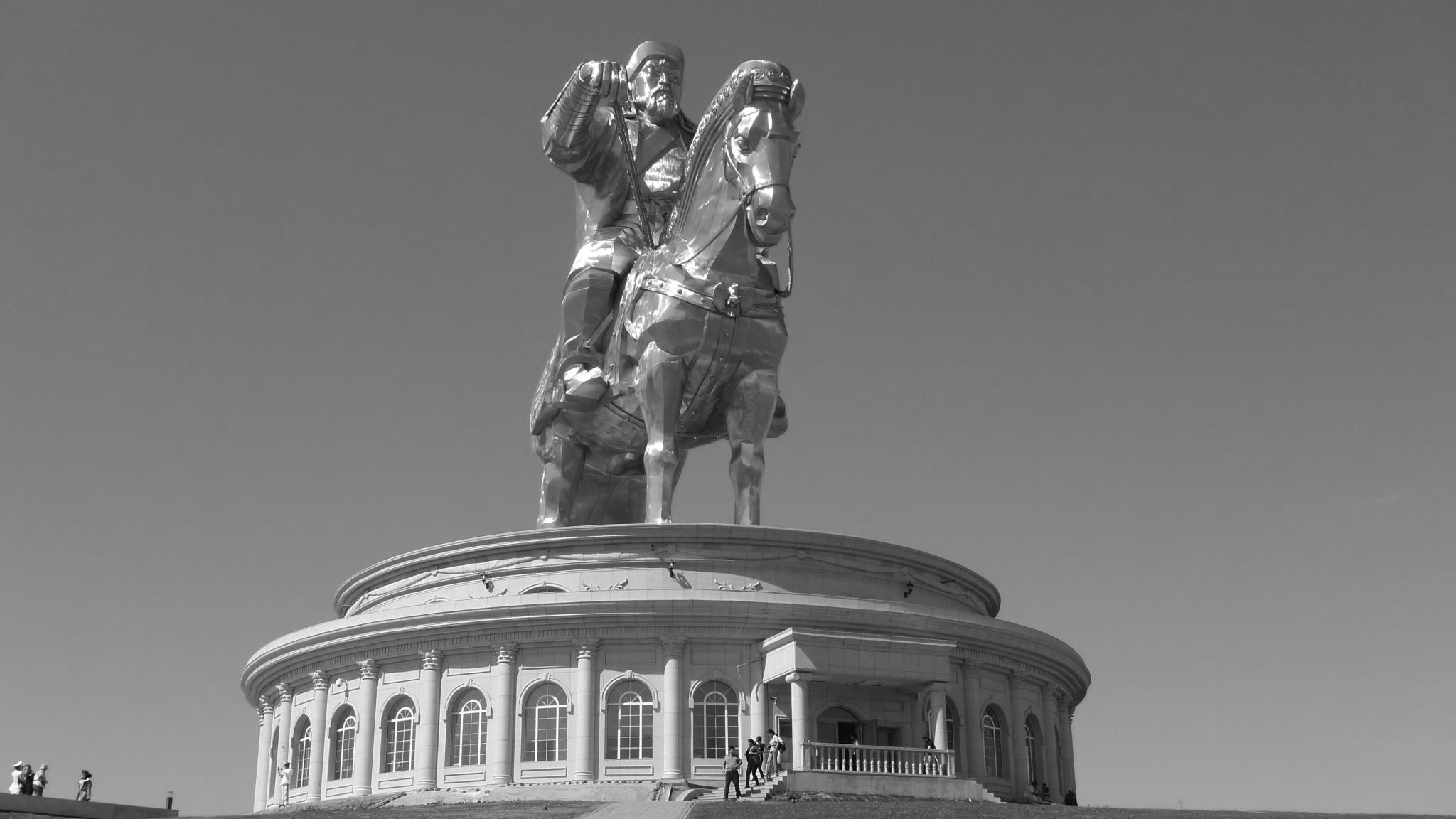
Not long ago, Mongolia erected a massive monument to Genghis Khan. It is the largest equestrian statue in the world. The greatest conqueror in world history glares out from atop his horse, looking east, towards his supposed birthplace. He is supported by 36 pillars, representing other Khans. The monument is surrounded by yurts and exhibits displaying Mongolian history and culture.
To Mongolians, he is a hero. The local airport is named after him. The president praised him. Merchandise with his likeness can be found everywhere in the country.
Of course, all this celebrates a man who was responsible for an estimated 40 million deaths. He used mass extermination against resisting cities and can be considered a pioneer of biological warfare because of his tactic of hurling cadavers over city walls. He and his successors killed about five percent of the world’s population.
It took Russia centuries to recover independence. China was ruled by Sinicized Mongol emperors. The Caliphate in Baghdad, at that time one of the world’s most advanced civilizations, never recovered.
Europe was not exempt. The Mongol general Subutai, leading a relatively small force, smashed Western armies with ease. If the Great Khan (at that time, one of Genghis Khan’s sons) hadn’t died, the Mongols probably would have conquered Rome itself.
This is a powerful lesson for those who assume Europeans are automatically the world’s greatest warriors. This includes both those who think they are inherently better than others because of their ethnic identity and those who assume Europeans are always oppressors and never victims.
I doubt the latter group will accept this lesson. They have too much invested in a simplistic, Manichean worldview where Western Civilization is always the bad guy. Genghis Khan was responsible for at least six times as many deaths as the Nazis and almost as many as Mao. There were also much fewer people back then.
Yet are outraged Arabs, Russians, Chinese, or Eastern Europeans demanding (or getting) reparations? Is there a movement that suggests this should take place?
Of course not. The idea is absurd. Scholars calmly discuss whether Genghis Kahn’s conquests were a good thing because they expanded trade routes. Apparently, this omelet was so tasty it justified breaking 40 million eggs.
We can also think of examples closer to home. Not that long ago, Napoleon conquered most of Europe. The occupation of the German territories was especially brutal. In one famous case, a man who was distributing a book calling for German resistance to the French was executed by a firing squad. German student fraternities that still exist today originated as underground groups preparing for an uprising. The collective experience of occupation was a powerful factor in eventually creating the united German identity that culminated with Bismarck’s achievement.
Yet is Napoleon a hated figure in the West, or even in Germany? Will you be attacked for expressing a favorable opinion about him? Hardly. His magnificent tomb still draws huge numbers of tourists every year. An author from the Emperor’s most implacable enemy, Great Britain, recently wrote a book arguing that he should be called “Napoleon the Great.” He’s also said the world would have been better off had Napoleon won at Waterloo. Is this author deplatformed, arrested, or assaulted? Of course not.
Journalists don’t demand your job or masked radicals your head if you express admiration for Genghis Khan, Napoleon, or, for that matter, Joseph Stalin. (A recent poll found 70 percent of Russians approve of Stalin.)
So let’s contemptuously dismiss the idea that people really care about human rights or universal moral norms. They care about avoiding taboos. They don’t want to lose money or perceived social status. Whether someone is considered a monster, a hero, or simply a historically important person is entirely a product of power, especially media power.
“History is written by the winners,” we are smugly informed. The ones who tell us this are usually the ones operating from a position of power, even if they pose as victims. They are simply the beneficiaries of previous conquerors.
Those who lecture us about our moral obligations have this power because their superior ancestors were conquerors. No doubt, if their powerful ancestors could see their mentally and physically weak descendants, they would have decided it wasn’t worth fighting for them.
Conquerors don’t apologize. Outside the West, their descendants don’t either. Whoever you are, whatever your ethnicity, you exist because those before you had the courage to fight for survival and work for the next generation.
You’re descended from conquerors. Act like it. Don’t apologize. Become a king by your own hand.
